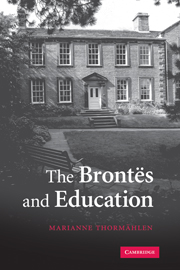Book contents
- Frontmatter
- Contents
- Acknowledgements
- Abbreviations and editions
- Introduction
- I EDUCATION AND SOCIETY
- II HOME AND SCHOOL
- 3 Household education versus school training
- 4 Parents and children
- 5 Professional educators in the home
- 6 Schools and schooling
- III SUBJECTS AND SKILLS
- IV STRATEGIES AND METHODS
- V ORIGINALITY AND FREEDOM
- Notes
- Select bibliography
- Index
6 - Schools and schooling
Published online by Cambridge University Press: 22 September 2009
- Frontmatter
- Contents
- Acknowledgements
- Abbreviations and editions
- Introduction
- I EDUCATION AND SOCIETY
- II HOME AND SCHOOL
- 3 Household education versus school training
- 4 Parents and children
- 5 Professional educators in the home
- 6 Schools and schooling
- III SUBJECTS AND SKILLS
- IV STRATEGIES AND METHODS
- V ORIGINALITY AND FREEDOM
- Notes
- Select bibliography
- Index
Summary
The great advantage of a boarding school from the professional educator's point of view is that it allows parental interference to be kept to a manageable minimum. It is a mark of professionalism in Madame Beck that she, alone among the parents in the Brontë fiction who employ staff to teach their children in their homes, is seen to respect the nursery-governess' sphere of authority. In Madame Beck's home and school, an unsatisfactory employee is not censured but sacked. Madame retains overall control, not least thanks to her extensive intelligence policy; but as long as a person she has hired gives reasonable satisfaction, he or she is allowed to get on with the job.
Lucy Snowe is compelled to admit that Madame Beck's school is a model where the physical welfare of pupils is concerned:
No minds were overtasked; the lessons were well distributed and made incomparably easy to the learner; there was a liberty of amusement, and a provision for exercise which kept the girls healthy; the food was abundant and good: neither pale nor puny faces were anywhere to be seen in the Rue Fossette. She never grudged a holiday; she allowed plenty of time for sleeping, dressing, washing, eating; her method in all these matters was easy, liberal, salutary, and rational: many an austere English school-mistress would do vastly well to imitate it – and I believe many would be glad to do so, if exacting English parents would let them.
(Villette VIII.73)- Type
- Chapter
- Information
- The Brontës and Education , pp. 63 - 76Publisher: Cambridge University PressPrint publication year: 2007



